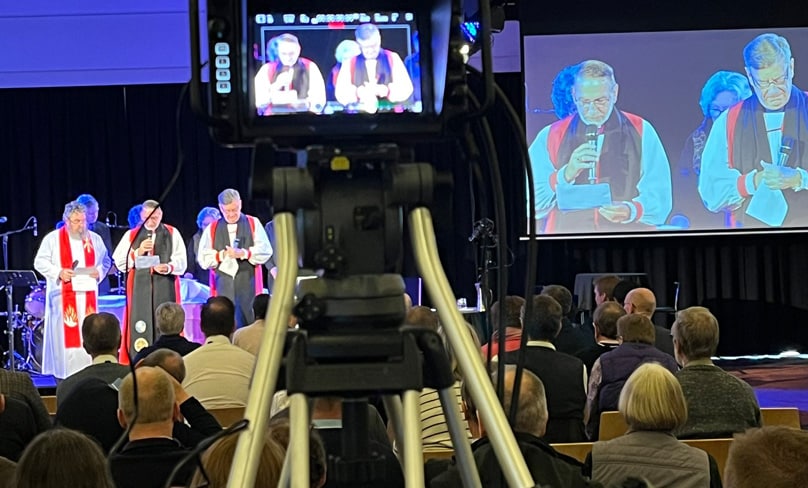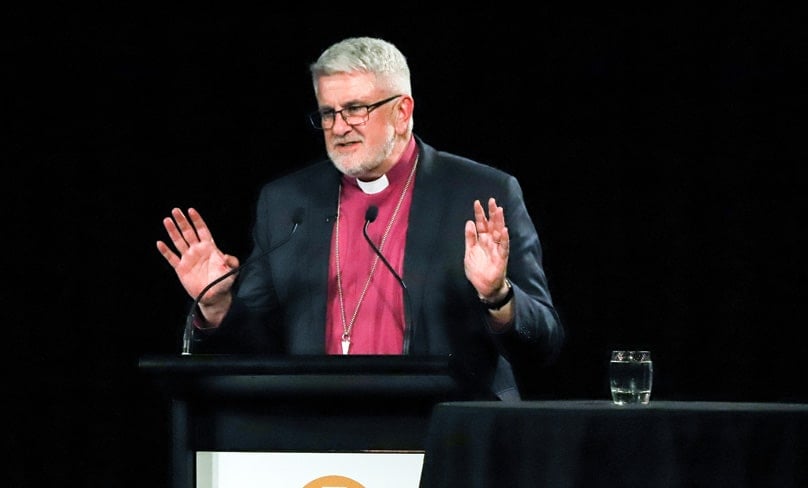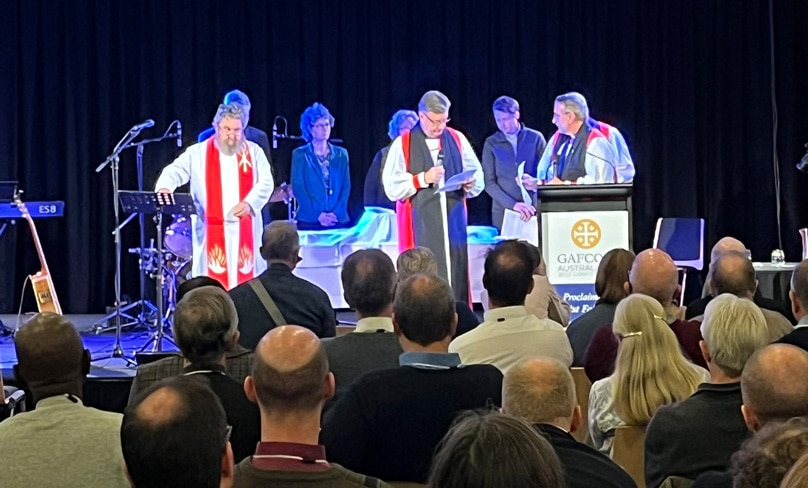
Evangelicals have put the rest of the Anglican Church in a no-win situation, with lessons for winner-takes all Catholics
The creation of the new Diocese of the Southern Cross by the evangelical Global Anglican Futures Conference (GAFCON) movement has been described as a “lifeboat” for conservative evangelical Anglicans fed up with their progressive bishops.
The nautical metaphor is indeed correct, but it isn’t a lifeboat. It’s an amphibious lander.
At the Anglican General Synod in May this year the evangelicals’ motion affirming traditional marriage passed two of the three houses of the Anglican Synod: the houses of the laity (63/47) and the house of clergy (70/39).
It was only narrowly defeated in the house of bishops (12/10, two abstaining).
In the 2021 Census Anglicanism dropped to 9.8 per cent of the population and its average age rose to 56 years.

Sydney Anglicans tend to be younger, better educated, and wealthier. For instance, the evangelical Moore Theological College in Sydney reported 400 new undergraduate enrolments in 2021.
Over half of Moore’s enrolments end up in direct Church work, and around another 20 per cent enter mission, chaplaincy, theological education and related fields.
The broad church Trinity College Theological School in Melbourne, by comparison, lists 39 undergraduates in its 2021 Annual Report.
An amphibious lander, not a lifeboat: thriving evangelicals are not abandoning ship, but will use this parallel structure to set up beachheads in liberal-progressive dioceses they see as having departed from the authority of Scripture.
Meanwhile Sydney will continue to participate in the official structures of the Anglican Church, which it increasingly dominates.
This leaves the other Anglican Bishops with a real dilemma: are they willing to tolerate Sydney’s ongoing presence in General Synod and the broader Anglican Church of Australia?

The “cult” language suggests they may not be. Following the establishment of the new Diocese, the Bishop of Newcastle, Rev Dr Peter Stuart, asked his senior clergy in a letter to declare whether they had a “conflict of interest” because of membership in Gafcon or had attended the Gafcon Australia conference.
For broad church Anglican bishops this is a no-win situation: if Bishop Stuart and others like him kick Gafcon-aligned evangelical clergy out of his diocese, they will be welcomed as martyrs for truth in the new parallel structure, showing why it was necessary to begin with.
But it is impossible for the progressive bishops to banish Sydney and its evangelical allies from the Anglican Church of Australia, and if they could it would reduce the church to a liberal rump with serious questions about future viability, let alone solvency.
As the Plenary Council journey showed, we must also come to terms with an increasingly diverse range of viewpoints within our own Church, some of which are simply irreconcilable.
This most recent development within Anglicanism could lead Catholics of all persuasions to reflect on the value of Church unity and the consequences of a winner-takes-all mentality.
After all, the Catholic Church is also a kind of boat: an ark, within which all kinds of creatures can find salvation.
